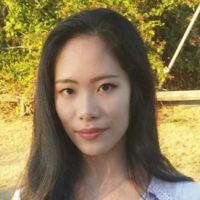Computing Researchers Respond to COVID-19
At the Computing Community Consortium (CCC), we know that everyone is dealing with a lot in these unprecedented times. We are continuing to work on behalf of the computing research community to catalyze research, but we also want to support the ongoing impact of that community’s work. To that end, we have been publishing a series of posts on the CCC Blog about ways in which computing researchers are working to adapt and help with the current challenges. We hope that you find something that may inspire you in these blog posts, either now or in the future:
- Running a Virtual Conference
- Blair MacIntyre, a professor in Georgia Tech’s School of Interactive Computing, contributed to this post.
- Working with Kyle Johnsen, an associate professor in the University of Georgia’s College of Engineering, Professor MacIntyre “transitioned the IEEE VR 2020 Conference to an all-virtual event…Working non-stop for two weeks, with the help of the entire conference committee and support from Mozilla and dozens of volunteers, they pulled together the technology to support a full scale virtual conference.”
- Misinformation
- This post was written by CCC Senior Program Associate, Helen Wright.
- Recognizing and responding to misinformation during this emergency: “Rumoring can help to alleviate anxiety during information voids and acts as a form of collective sensemaking, but it can also lead to the spread of misinformation. False rumors (or misinformation) are dangerous, because they can cause people to make the wrong decisions, including decisions that endanger themselves or others.”
- Staying Connected
- The following is a guest blog post from CCC council member Jennifer Rexford from Princeton University.
- “As difficult as the current Covid-19 situation is, at least we can use the Internet to support the global collaboration of scientists, keep abreast of the latest developments, teach our students and children, stay in touch with friends and family, and even find much-needed moments of levity.”
- Decontaminating N95 Masks
- Former CCC Council Member Kevin Fu from the University of Michigan provided contributions to this post.
- “Fu is a co-organizer of N95DECON, a volunteer-based organization made up of esteemed scientists, engineers, clinicians, and students seeking to provide information and develop guidance for medical facilities that need to decontaminate face masks for reuse by healthcare workers. Fu explains that the group’s overarching mission is to provide a rigorous scientific assessment of decontaminating N95 masks for reuse by healthcare professionals during this crisis shortage.”
- Personal Protective Equipment Fabrication
- Authors of this blog post are Kristin Osborne, Communications Manager at Paul G. Allen School of Computer Science & Engineering, at the University of Washington (UW) and CCC Council member Shwetak Patel, Washington Research Foundation Entrepreneurship Endowed Professor in Computer Science and Engineering and Electrical Engineering, at UW.
- “Recently, UW Medicine launched an effort to harness the University of Washington’s extensive network of maker spaces and fabrication expertise to address the shortage of PPE.”
- Voxel51; A Means of Tracking Social Distancing
- The Voxel51 team contributed to this post.
- “Leveraging the startup’s existing video analysis technology, Voxel51 developed the Physical Distancing Index to help track how COVID-19 and preventative measures to contain its spread have impacted human activity around the globe in real time.”
- Automated Contact Tracing for Fighting the Coronavirus: A Short-Term Effort with Long-Term Repercussions
- The following is a guest blog post from Ran Canetti, a professor of Computer Science at Boston University and the Director of the Center for Reliable Information System and Cyber Security.
- Automated contact tracking uses “Bluetooth Low Energy phone-to-phone transmission. Phones constantly broadcast a system-provided identifier, and collect identifiers received from nearby phones. Once a user tests positive, their phone uploads its transmitted and collected identifiers to a central database along with other location information. The center then contacts users who were collocated with the infected individuals for potential quarantine and treatment.”
- While automated contact tracing for fighting the Coronavirus might seem simple it “is anything but” and “it opens a number of new and exciting research directions: in low energy wireless, cryptography, computational epidemiology, ethics, law, public policy, and the intimate relationships between them.”
If you know of additional topics and think they might be helpful for the community during this time, please email Helen Wright (hwright@cra.org).










